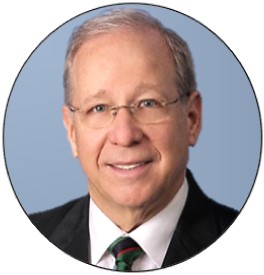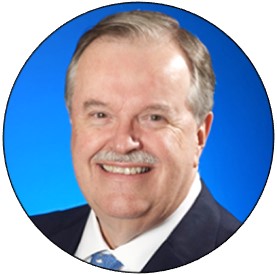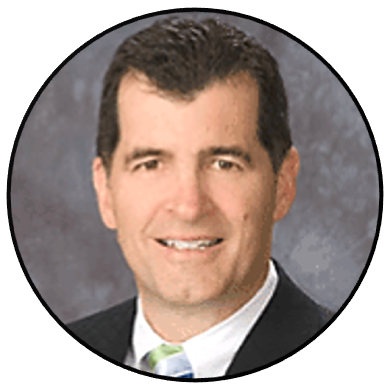In The Battle Of Active Versus Passively Managed Mutual Funds, Passive Is About To Become More Popular With Advisors, Report Says
In addition, Tiburon's survey indicates advisors plan to increase their use of:
- annuities by 29%
- cash and money markets by 27%
- separately managed accounts by 26%
- bonds by 25%
- stocks by 23%
- alternative investments by 23%
- exchange-traded funds by 17%
- variable annuities by 15%
- actively-managed funds by 14%
To be fair, the report also suggests advisors could be all talk and no action. “While many investment products get discussed, the data says same old, same old,” says the report entitled, “The Future of Wealth Management: Defining the Winning Product, Channel, & Tactical Strategies.”
For instance, when you look at assets under administration, you notice that the asset/product mix varies by distribution channel.
For fee-only financial advisors, for instance, the breakdown is 61% in mutual funds (mostly no-load funds); 22% in individual securities; 7% in ETFs; 6% in separately managed accounts; and just 4% in variable annuities.
By contrast, independent reps have 49% in mutual funds; 9% in individual securities; 2% in ETFs; 2% in separately managed accounts; and 38% in variable annuities.
Why The Increase In Index Funds?
Why do advisors plan to increase their use of index funds? Is it related to performance? Are index funds more likely to outperform actively managed funds in the future? (Of note, advisors are not the only ones who are down on actively managed funds. Actively managed equity funds have experienced more than $1 trillion outflows since 2008.)
Is it related to costs? Could it be that advisors are having a tough go of justifying their assets under management fees along with the fees associated with actively managed funds?
According to Tiburon’s report, the reasons are largely related to cost. “Active is a zero sum game,” is one view being expressed. In fact, it’s less than a zero sum game after taxes and expenses. What’s more, there’s the notion that low expenses are the most reliable indicator of mutual fund performance. And lastly, advisors want to control what they can, including expenses and taxes being among the things that can be controlled.
Rob Schmansky, CFP, of Clear Financial Advisors, agrees that the increased use of index funds is due to cost, but it's also due in part to the need to incorporate tactical asset allocation strategies. “Clients are definitely more fee-conscious, which is likely driving the search for lower cost funds, as well as for advisors justifying fees,” Schmansky says.
For some advisors, however, the increased use of passive funds is a matter of both cost and performance. “We firmly believe that index funds, over the long run, will always outperform actively managed funds on the whole, after cost,” said Chip Workman, CFP, of The Asset Advisory Group (TAAG).
For others, the increased use of passive funds is a reflection of bad experiences with active management, especially when the advisor’s business model is factored into the equation. “I have heard many advisors prognosticate for the past few years single-digit returns from the higher end of the risk spectrum,” says Aaron Coates, CFP, CIMA, a financial advisor with Valeo Financial Advisors, LLC. “It seems most never considered the implications to their business/compensation model if they were right.”
If the average of those assets is high single digits with wide dispersion within or among asset classes, an active manager may be able to add value, Coates says. “But many advisors are reluctant to trust a ‘go anywhere’ manager given that few consistently add value without a few years of fallout,” he says. “But what if the returns are not dispersed? What if there is no positive and negative alpha in the sphere the advisor is expecting the active manager to operate?”
At a minimum, advisors shouldn't increase their use of index funds for performance reasons. "Are index funds more likely to outperform?," asks Joe Pitzl, CFP, a principal with Intelligent Financial Strategies. "I don’t know. What I can say is that I think a lot of the debate and 'proof' floating around out there is extremely flawed and really doesn’t prove anything."
Pressure To Change
According to Tiburon’s report, more than two-thirds of fee-based financial advisors are feeling the pressure to revise their investment management strategies. “There’s a “major reset happening in investment strategies,” the report says. In particular, financial advisors are embracing tactical asset allocation; alternatives are becoming core asset class; volatility management strategies are emerging; and global asset allocation becoming the norm.
Indeed, the increased use of passive funds may be a result of both expanded use of ETFs as a way to reduce portfolio costs, as well as for asset-class exposure. “More advisors are adapting tactical asset allocation strategies and the best method for many of those strategies is likely a sector or country-specific ETF,” Schmansky says.
Others agree. “I believe the true reason to use low-cost indexes is for market exposure at low cost with decent tax efficiency that allows easy tactical allocation shifts,” says Coates. “The ability to hedge tail risk (again at low cost) should be an important consideration, but may be overlooked by many advisors more consumed with pushing their square business model in a round market environment.”
Some Advisors Don’t Plan Any Changes
To be fair, not all advisors plan to change how they invest for clients. Pitzl, for instance, is not materially changing the use of any products at the moment. "We do not have a dogmatic approach toward passive or active, and use both within our portfolios already."
Pitzl, for the record, doesn't take a stand on passive or active. "I tend to ignore the whole passive/active debate, as everyone has a different definition of these terms," he says. "We use several funds with lower turnover than an index. Are those active or passive?"
Others will join Pitzl in not making changes to how they invest. “We don’t plan to increase or decrease our use of any products nor would we for any market-driven reason,” said Workman.
Workman uses index-like institutional mutual funds through Dimensional Fund Advisors as we “firmly believe they are the best available product to achieve our goal of providing our clients the broadest exposure to the global market at the lowest possible cost.”
In addition, Workman says the fixed-income portion of the Asset Advisory Group’s portfolios are in “very short term, very high quality funds to help mitigate inflation-risk and the risk we take on the equity side of the equation.”
Schmansky also uses passive index funds and doesn’t plan to make any changes, though he notes one potential change. “Just with the general demographic shifts I am recommending more clients rollover retirement accounts and establish bond ladders for retirement income,” Schmansky says. “Where appropriate this may also involve a traditional annuity as a part of the retirement income mix.”

















